Snowden’s book doesn’t mention a job at ‘one of Russia’s biggest websites,’ and former CIA officials suspect a darker reality
This story has been updated to reflect that the U.S. government filed a civil lawsuit against Snowden over the publication of his autobiography.
For more than three years, the Russian lawyer of exiled NSA leaker Edward Snowden told reporters that the former U.S. intelligence contractor held an IT job in the country.
“Edward Snowden will begin working in one of the biggest Russian companies,” Anatoly Kucherena, a prominent Kremlin-linked attorney who took on Snowden’s case pro bono, told reporters on Oct. 31, 2013. “His job will be to provide support and develop one of Russia’s biggest websites.”
Kucherena, who leads the public council overseeing the post-Soviet FSB intelligence service that was created by Russian President Vladimir Putin in 2006, added the next day that Snowden "studied the labor code, what full-time and part-time work means,” before signing a contract.
Listen to the Snowden story on The Art Of The Exit
In all, the lawyer mentioned Snowden’s job more than a dozen times between 2013 and 2017, according to an analysis of English-language and Russian media by Yahoo Finance.
But Snowden’s autobiography, an advance copy of which was reviewed by Yahoo Finance, makes no mention of the supposed IT job. And two former CIA officials who spoke with Yahoo Finance were skeptical of Kucherena’s claims.
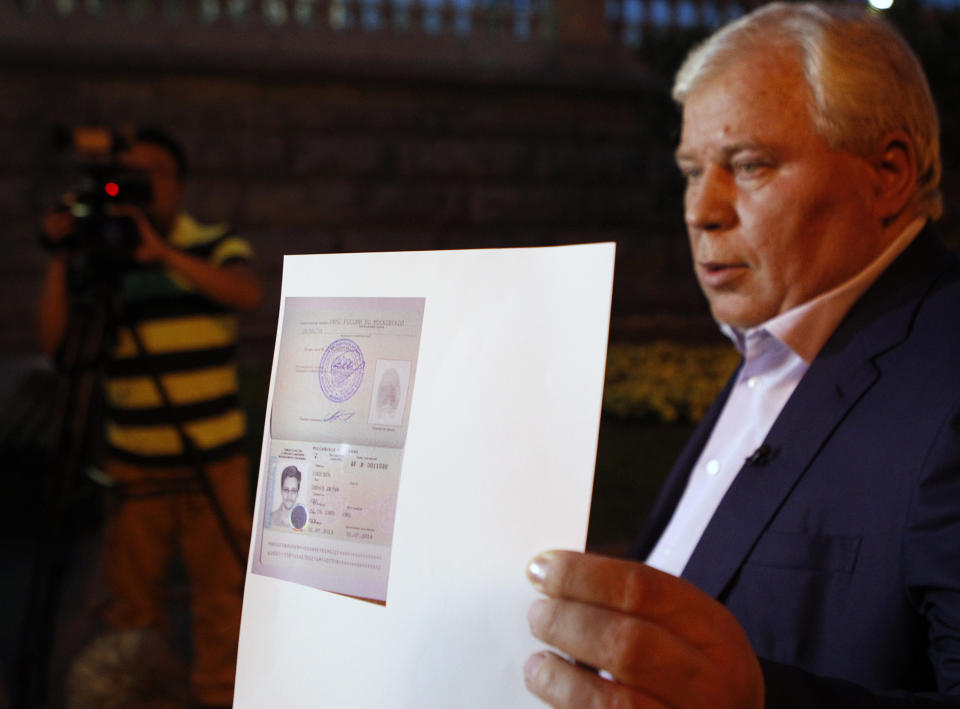
“My only sort of instinct is that [Kucherena] works for the security services and that's his talking point,” John Sipher, a former CIA station chief in Moscow and former head of the agency's Russia operations, told Yahoo Finance. ”He can't … say what he believes the truth is.”
Steven L. Hall, also a former chief of the CIA’s Russia operations, said that anything akin to a normal tech job for Snowden was unlikely.
“My assessment is that it would be very unusual, and I would say very doubtful, that the Russians would want to have him involved in anything like that,” Hall told Yahoo Finance. “Because they're very dark, and they're very counterintelligence-aware.”
Hall added that the Russians “would say, ‘Look, let's be safe rather than sorry. Let's keep him away from all of that stuff so that we can maintain positive control over him.’ So I think it's unlikely that he's legitimately working for a tech company in Russia, as I think Kucherena has indicated.”
Kucherena’s office previously told Yahoo Finance that he would discuss the inquiry about Snowden’s employment with Snowden and respond with any relevant information. The office did not respond to follow-up inquiries.
Snowden’s new book mentions Kucherena only briefly, noting that the lawyer helped him obtain asylum and “proved as adept at obtaining last-minute tickets to the opera as he is at navigating my legal issues.”
The scant detail about Kucherena belies the well-connected lawyer’s deep involvement in setting up Snowden’s life in Russia.

‘He’s planning to arrange his life here’
Edward Snowden captured the world’s attention in June 2013 after he allegedly removed more than 1.5 million classified U.S. documents while working as a contractor for the NSA in Hawaii and then flying to Hong Kong, providing an estimated 200,000 documents to American journalists, identifying himself in a video published by the Guardian, providing more documents to the South China Morning Post, meeting with Russian officials, and flying to Moscow with WikiLeaks advisor Sarah Harrison on June 23, 2013.
The reverberation of his leaks are still being felt in the U.S. government — Congress will soon decide whether to extend the problematic NSA domestic phone records program that Snowden exposed — despite the American starting a new life once he arrived on Russia soil.
Snowden and Harrison arrived at Moscow’s Sheremetyevo International Airport and were promptly escorted off the flight operated by Aeroflot, Russia’s largest airline and de facto national carrier. "They were getting luggage straight from the plane into the car. It seemed a little strange. I saw three pieces of luggage," an American Aeroflot passenger told AFP at the time.
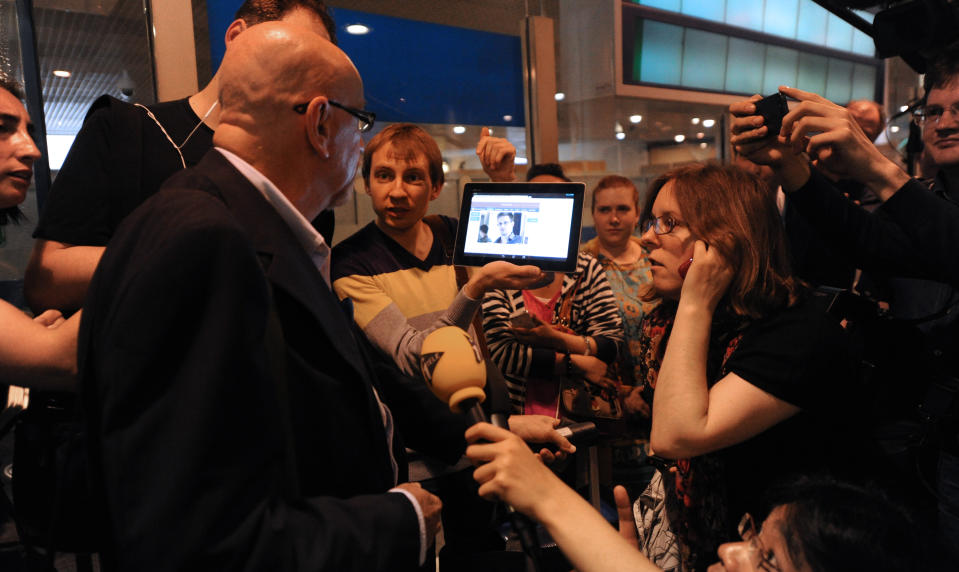
"I saw about 20 Russian officials, supposedly FSB agents in suits, crowding around somebody in a restricted area of the airport," Olga Bychkova, a host from Radio Echo of Moscow, who was at the airport, told Foreign Policy at the time. "The Kremlin pretends they have nothing to do with him being stuck in Moscow, but in reality they're all over him."
The then-30-year-old American intelligence official and his WikiLeaks chaperone — Harrison said she was sent to Hong Kong to help Snowden because she “could essentially disappear and not be followed” — were said to be in the airport’s transit zone but were actually nowhere to be found.
“Putin, as a former KGB officer, is super-involved with security services, and a former FSB director such that they sort of control things,” said Sipher, who served in the CIA for 28 years and retired in 2014. “So there's no chance that a foreign person who is of damage to the West and worked in our most sensitive areas is not handled by, run by, totally under the control of the Secret Service or the FSB and others there.”
The rest of the world bubbled with intrigue for weeks about where the man who exposed damning domestic U.S. intelligence collection — as well as routine U.S. foreign intelligence collection — would go next. Snowden reappeared on July 12 at a press conference at the airport where he thanked countries that were supporting him and said he would seek asylum in Russia.
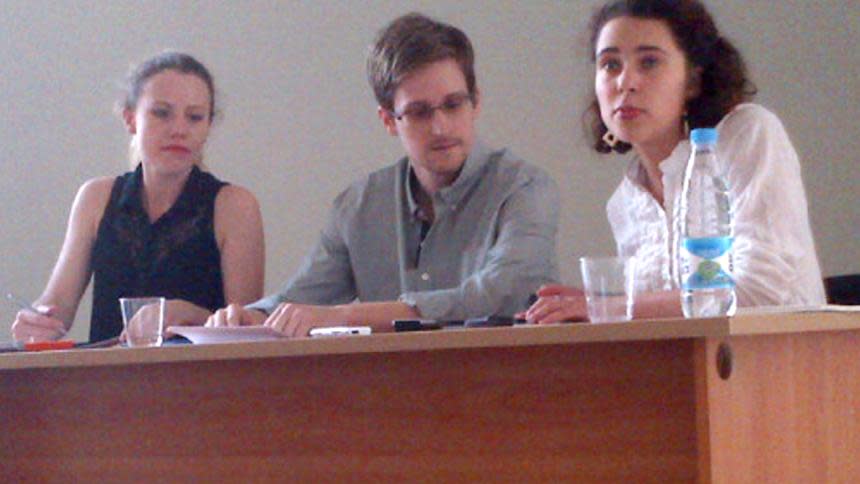
“These nations, including Russia, Venezuela, Bolivia, Nicaragua and Ecuador have my gratitude and respect for being the first to stand against human rights violations carried out by the powerful rather than the powerless,” Snowden stated before taking questions.
After the press conference, Kucherena offered his legal services and subsequently become the main source of information about Snowden’s new life.
“He’s planning to arrange his life here,” Kucherena, who served in the Soviet Strategic Rocket Forces in Moldova and campaigned for Putin’s reelection in 2012, told Russian state media outlet RT on July 23, 2013. “He plans to get a job.”
Hall, who retired in 2015 after 30 years at the CIA, explained that Kucherena repeatedly mentioning Snowden’s job “sort of normalizes the situation and bolsters, I think, what I would refer to as the cover story. Or as the Russians would refer to it: the legend of how Snowden is living out his life.”
See also: Edward Snowden: The complicated man behind an epic heist
‘He is almost out of money’
On Aug. 1, 2013, Russia granted Snowden temporary asylum and Kucherena escorted Snowden out of the airport and to an undisclosed location. The lawyer, who claimed to be Snowden’s “only link with the outside world,” told reporters that Snowden was running out of money.
“He is not a rich person, and the money that he had he spent on food in the transit zone,” Kucherena told reporters (translated from Russian). “Of course he knows that going forward he has to work in order to live.”
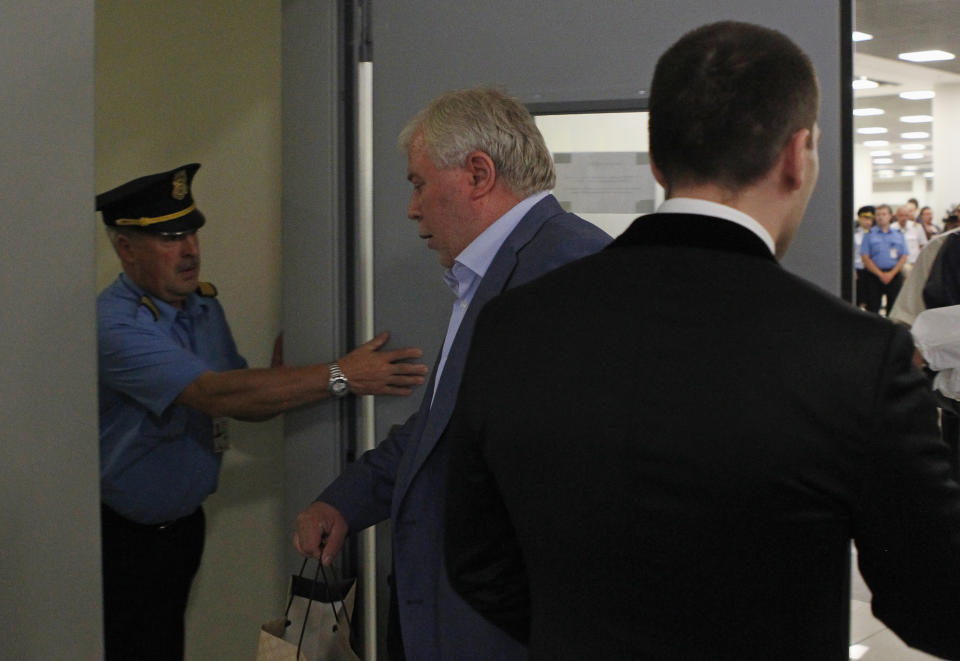
Snowden had told journalists in Hong Kong that he withdrew “enough financial resources to survive on my own for years without anyone’s assistance.” But according to Kucherena, the former CIA technician was paying for bodyguards with his own money.
“So far, he has been paying them himself from the money he had,” Kucherena told RT when asked about the bodyguards in September 2013. “But … he is almost out of money.”
It’s unclear who provided security for Snowden. Former CIA analyst Ray McGovern, who visited Snowden in October 2013, told Reuters that he had to pass through metal detectors and some kind of official Russian security detail protected Snowden.
Experts have long held that the FSB, which is responsible for Russia’s domestic security and counterintelligence, are heavily involved in the American’s ongoing asylum. In 2015, Kucherena said that Snowden lived under permanent protection. (Snowden’s memoir makes no mention of bodyguards.)

“[The Russian government] may be charging him or forcing him to hire a 'friendly' private security firm,” Mark Galeotti, a specialist on Russia’s security services currently at the Institute of International Relations in Prague, told Yahoo Finance in an email. “If he can't afford it, I doubt the Russians wouldn't protect him, because 'security' in this context is as much about controlling as guarding him.”
A few days after Kucherena announced Snowden’s job — declining to name the company "for security reasons” — he reiterated to reporters that the cost of Snowden’s living expenses meant that he was almost broke.
“The savings he had, he has almost entirely spent on food, rent, security, and so on,” Kucherena reiterated in November 2013.
‘He is a unique specialist; the company won't let him go’
The country’s largest internet companies denied that they had hired Snowden. VKontakte, the country’s largest social media company, declined to comment on the news after the founder had previously offered Snowden a job.
“Currently Edward tries to keep a low profile, and my offer was public: It could be a problem,” VKontakte founder Pavel Durov, who fled Russia the following year after allies of Putin took control of the social media website, told a conference in Berlin at the time.
In the years that followed, Kucherena repeatedly told journalists that Snowden worked in IT. (The Russian lawyer also sold the rights to his novel about Snowden to filmmaker Oliver Stone for $1 million.) However, no evidence has emerged to corroborate Kucherena’s assertions.
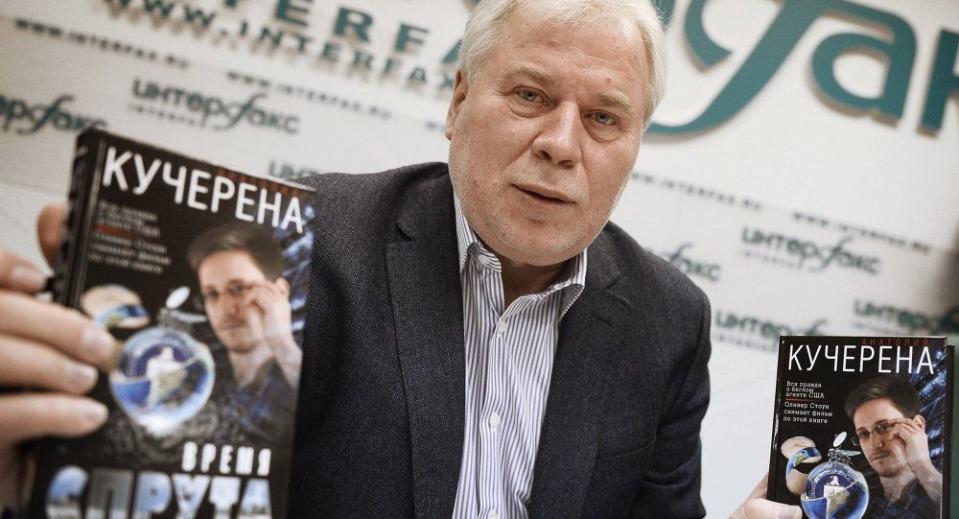
In December 2014, Kucherena told Russian media that Snowden was “working as an IT consultant in one company.” In February 2015, Kucherena told reporters: "He has long worked for a Russian company. He is a unique specialist; the company won't let him go. ... His salary is commensurate with his skill level, so he has no problems making a living.” In March 2015, Kucherena said: "Edward is under protection, we take measures to ensure his safety. He is working and learning Russian.”
On June 23, 2015, the two-year anniversary of Snowden arriving in Russia, Kucherena stated: “Today he has now — if one can put it like this — settled in. … He is working in an IT company. We are not revealing this information, and it is understandable on what grounds. So today, I thank God, everything is fine. He is working. He is satisfied by the work he is doing.” In January 2017, while announcing a three-year extension to Snowden’s Russian residency permit, Kucherena said: "He has not broken the law, he has a permanent job, so there are no grounds to deny [the extension]."
Snowden’s main source of income in Russia, according to American lawyer Ben Wizner, came from being paid to speak to audiences via video chat. Snowden made more than $200,000 from speaking fees in 2015 and 2016, Yahoo News previously reported, including events at various American universities.
In Snowden’s memoir, he notes his work with Freedom of the Press Foundation as a board member and then as president/chairman. Tax documents show he draws no salary and worked an average of five hours or less per week for the nonprofit organization from 2014 to 2017. Amid a relative slowdown in digital speaking appearances, Snowden’s book likely provided him with a further source of income.
However, the U.S. government filed a civil lawsuit against Snowden and the publisher, Macmillan, in an attempt to “recover all proceeds earned by Snowden because of his failure to submit his publication for pre-publication review in violation of his alleged contractual and fiduciary obligations.”
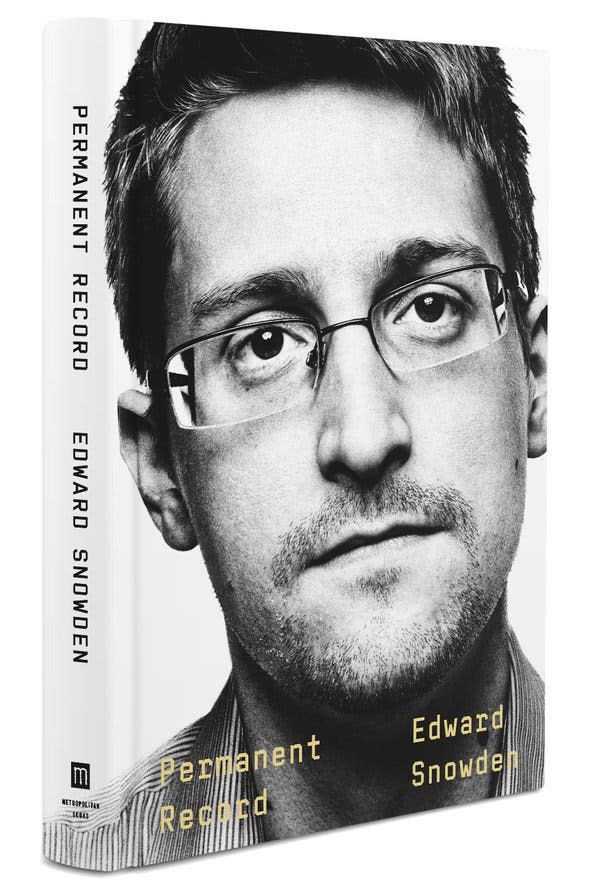
‘He is a sort of ghost’
Snowden’s new book does not provide many details about his life in Russia, beyond stating that he lives in a two-bedroom apartment with his partner, Lindsay Mills, travels within Russia’s borders, and picks up Burger King.
And despite the world-famous American’s assertions that he rides “the subway like everybody else,” Snowden has rarely been photographed in public.
The only photographs of Snowden in public since he landed in Moscow were either published in 2013 and 2014 by Russian state media outlets or posted on Instagram by Mills (or, in another sighting, journalist Glenn Greenwald).
In his new book, Snowden recounts agreeing to being in a selfie taken by a young tourist at a museum in Moscow — and then immediately worrying that the photo would show up on social media. (It apparently never did.)
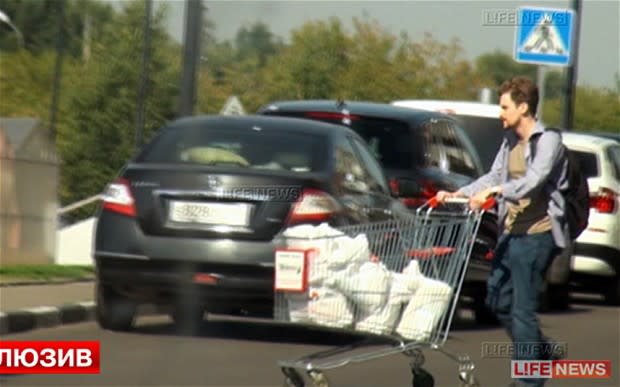
“He is a sort of ghost,” Russian investigative journalist Andrei Soldatov, who co-wrote definitive books on the post-Soviet security services and the history of the Russian internet, said about Snowden’s new life as of November 2017. “It looks like he’s there, but since he’s banned from talking to Russian journalists or Moscow-based foreign journalists, … he speaks only to journalists coming specifically to interview him, so they are all approved [by the Russian government] in advance. So he is almost nowhere.”
Snowden writes in his memoir that he spends “a lot of time in front of the computer.” During some of the more than 200 digital appearances while in exile, Snowden has said that he primarily lives on the internet.
“I have to lay my head down in Moscow on a pillow at night,” he told an Israeli audience in November 2018, “but I live on the internet and every other city in the world.”

‘They can always run that stuff by him’
In the end, the veracity of Kucherena’s statements about his client’s purported job may not matter if the lawyerly assertions serve the interests of Russian authorities.
“What they want to do is continue with this fiction that somehow Snowden is ... a normal individual,” Hall said. And a Russian lawyer assigned to someone like Snowden, Sipher explained, would “lose their job and lose their ability to have clients if they did not work in concert with the FSB. ... it's impossible that [Kucherena] is not working directly for, or in concert with, the security services.”
The most important aspect of the situation to Kucherena, presumably, is Snowden’s value to his Russian hosts.
“He is a propaganda tool for them and a constant irritant to the United States and to the West,” Hall said. “The other thing is that he would be very useful to them if they have ongoing questions. If some new system pops up, or some new question arises that he had expertise in previously, they can always run that stuff by him.”
Michael is an editor and head of audience development at Yahoo Finance. Follow him @MichaelBKelley.
Listen to a new podcast about Snowden here.
READ MORE:
In exile, Edward Snowden rakes in speaking fees while hoping for a pardon
As tensions rise with Russia, U.S. colleges still pay for Snowden speeches
Inside the bizarre $1 million Russian novel behind Oliver Stone’s ‘Snowden’
Russian investigative journalist: Snowden is 'a sort of ghost'
Read the latest financial and business news from Yahoo Finance
Follow Yahoo Finance on Twitter, Facebook, Instagram, Flipboard, SmartNews, LinkedIn, YouTube, and reddit.

